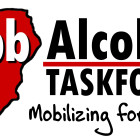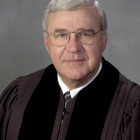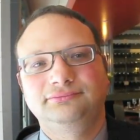
Conference Searches for Solutions to Stop Underage Drinking
|
KENNESAW, Ga. – Convening policy-makers, law enforcement officials and representatives from the courts, The Cobb Alcohol Task Force on Monday hosted a conference to develop plans to reduce underage drinking. The daylong Justice System Response to Underage Drinking: Roadmap for Improvement held at Kennesaw State University in Kennesaw, Georgia, brought the “significant players to the table,” according to Alisa Bennett-Hart, Cobb Alcohol Taskforce’s public relations specialist. “Sometimes we have to get everybody together to listen to what they have to say,” Bennet-Hart said. “This [conference] is us listening.”
The morning began with presentations and an hour-long roundtable panel discussion by a mixture of experts from law enforcement, the courts and advocates. After lunch, participants split into smaller breakout sessions where they could discuss potential strategies. Each session included a mixture of law enforcement, judicial representatives and policy makers.








